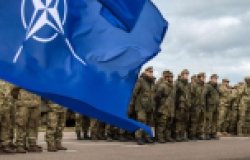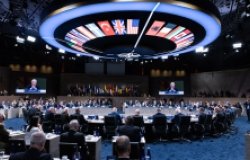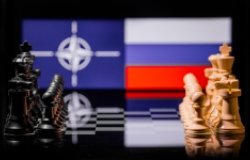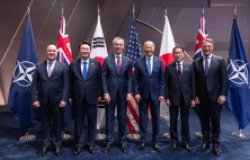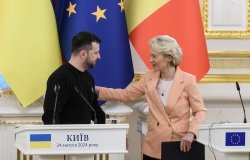Winston Tan / Shutterstock.com
The Global Impact of 9/11: Twenty Years On
Overview
The September 11, 2001 attack on the United States redefined international security threats and altered the nature of warfare globally. To commemorate the 20th anniversary, the Wilson Center examines the lasting impact of 9/11 and the global war on terror internationally, with specific regional focus on the Middle East, South Asia, and Europe. Experts will discuss the enduring legacy of 9/11 in terms of conflict and regional instability, jihadism, politics, and U.S. global leadership.
Key Takeaways
- The United States’ response to the 9/11 attack, namely the invasion of Afghanistan, had a deeply destabilizing impact on the Middle East and North Africa region. In addition to the death of tens of thousands of Afghanis and others from the region, as well as the emergence of new terrorist groups, U.S. post-war policies sparked a strong wave of anti-Americanism across MENA.
- The global threat of terrorism is "flashing red". Islamist violent extremist groups are leveraging social media and new technologies to recruit foreign fighters, and the Taliban's quick takeover of Afghanistan gave radicals a boost to their message.
- The propagation of radical ideologies and "master narratives" are one of the main drivers of terrorist recruitment. An effective counterterrorism and counter violent extremism strategy must draw on soft power, fighting the war of ideas and the amplification of counter-narratives that have an impact.
Key Quotes
Bruce Hoffman
"Impatience is certainly our worst enemy. We're remarkably impatient. As the Taliban used to say, we may have the watches, but they have the time, and they indeed have proved that. And that's part of the problem. Al Qaeda has definitely, under al Zawahari, moved much more into empowering its local franchises to engage in acts of governance, and also building their own version of a civic society. One of the jihadis’ main arguments is that they're not corrupt—they are, of course—but they at least portray that they don't have quite the venality that many local potentates have in embracing Western aid and siphoning it off. Al Qaeda, under Bin Laden, was much more cautious about empowering its local franchises to engage in self-governance. Al Zawahari, very wisely, because of the competition from ISIS in particular, has pursued that route. That said, we have to remember, when U.S. forces took down al Qaeda's headquarters in Kandahar in November 2001, they found that Bin Laden had a very well-stocked library, and amongst the books he had were books on Menachem Begin and the Irgun struggle against the British in pre-state Israel. What he wanted to know was not terrorist tips, even though the Irgun had blown up the King David Hotel, but rather he was studying—we know this from multiple sources—the Irgun’s transition from a terrorist group to a political party to the Freedom party. So even groups like al Qaeda aspire to make precisely the transition that Hezbollah has achieved, and that inspires them. Now, it may take them forever. It may never happen, but I go back to an earlier point: If these struggles are divinely ordained, you just don't give up, there are successive generations that the torch is passed to."
Michael Kugelman
"ISIS-K is mainly comprised of Pakistani and Afghan fighters who had essentially split off from the Afghan and Pakistani Taliban in recent years—mainly disaffected members of the two different Talibans. But they are rivals because ISIS-K is a formal part of the parent ISIS. Back when ISIS-K first emerged in 2015 in Afghanistan, its presence in Afghanistan was formally announced by ISIS Central. There's a fair amount of evidence that ISIS Central has provided a financial support, military support, and so on to ISIS-K in Afghanistan. And so, they are rivals. They have literally been fighting each other. The Taliban in recent years has been going to war against ISIS fighters in Afghanistan. People sometimes get confused by the fact that you do have many former Taliban, including former Haqqani network fighters, going over to ISIS-K, that makes some people believe that there's some sort of linkage between the Haqqanis, the broader Taliban, and ISIS-K, but that's not the case. They are two distinct organizations."
Fernando Reinares
"The global war on terror has been, generally speaking, a failure. And that failure has been observed all throughout the West. But, speaking from Western Europe, where I am now, if we divide the past 20 years into two significant periods, the period between 2002 and 2011, and the period from 2012, what we can see is that, during the second period, the number of fatalities caused by Jihadist terrorism is greater than in the first period. If we look at the second period, the level of radicalization in the region is far greater than in the first period. Actually, over the past 10 years, we have experienced in Western Europe an unprecedented cycle of jihadist mobilization. If you just look at the number of individuals who became foreign terrorist fighters in Syria, over the past 9 to 10 years, you will find that 1/5 of them were living in Europe, which means that Muslims aged 18 to 35 and living in Western Europe are more than 20 times over-represented among foreign terrorist fighter, jihadist terrorist fighters, when compared with individuals coming from other regions in the world. So, we still have to learn how to tackle the issue of radicalization. We haven’t learned how to deal with the spread and the impact of Jihadist ideologies."
Nadia Oweidat
“[For] twenty years, and before that there was another twenty or thirty years, of investment, billions of dollars every single year to proselytize certain ideas; Wahhabism, jihadi-Salafism. There is active investment, and this investment is supported by television, by mosques. And there is not a counterinvestment in reform. There is not a counterinvestment in actually unleashing the soft power the West has. All authoritarian regimes, Islamists, extremisms, even China and Russia, understand the threat of democratic values and classical liberalism. They go out of their way to prevent access to these ideas, because they know they can undo extremism [and] can authoritarianism. Censorship is a means to an end of not allowing real competition of ideas. But yet, liberal democracies do not really lean on their strengths. They have yet to unleash their soft power. There is an aversion to actually going there, even though it is the most important front in some ways. The ideology has not really been challenged."
Event Summary
The United States’ response to the 9-11 attack, namely the invasion of Afghanistan, had a deeply destabilizing impact on the Middle East and North Africa (MENA) region. In addition to ushering in war and instability, U.S. post-war policies sparked a strong wave of anti-Americanism across MENA. The Taliban’s quick takeover sent shockwaves across the globe, and a clear message: the War on Terror is far from over.
Understanding the Developments of the Last Two Decades
According to Bruce Hoffman, “There are now four times as many Salafi jihadist terrorist groups designed by the US State Department today than were twenty years ago.” While the U.S. and its allies degraded the capabilities of Al-Qaeda and the Taliban in Afghanistan, they did little to address the root causes of terrorism. Dr. Nadia Oweidat argued that, for the past twenty years and beyond, authoritarian regimes in the region, “invested billions of dollars every single year to proselytize certain ideas; Wahhabism, jihadi-Salafism.” A counterterrorism strategy that solely relies on military force neglects the ideologies factors that underpin extremist movements.
The last two decades also witnessed the globalization of terrorism. The recruitment of foreign fighters continues to be a leading cause for the sustained expansion of terror groups. In particular, violent extremist groups leverage social media and new technologies to recruit supporters from around the world. According to Fernando Reinares, “Al-Qaeda has not been degraded. [Its] central command is smaller than what it used to be in Afghanistan and Pakistan, but only because we have a global decentralized structure.”
Anticipating and Planning for the Future
The U.S. and its regional and global allies can play a major role in the future of Afghanistan and the threat of global terror. Kugelman contended while the Taliban enjoyed a rapid succession to power, it will struggle to bring the severe economic crisis under its control. This can provide an opening for the international community to demand respect for human rights and decent governance in Afghanistan. “[The Taliban] recognizes legitimacy entails foreign assistance. If there is one thing the Taliban is looking for from the world, it is financial assistance,” he added.
The West must also leverage its soft power to counter extremist narratives. According to Dr. Oweidat, “There are master narratives that terrorists use. They address grievances that are not just economic, but even grievances related to identity and religious identity.” In this way, using soft power as a counterforce is, in some ways, the most important front. She added, “The ideology is yet to be challenged. We have a lot of allies all over the Arab world. We need to put our weight behind these ideas.”
Speakers
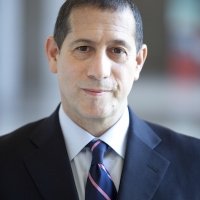
Bruce Hoffman
Professor, Edmund A. Walsh School of Foreign Service, Georgetown University; Visiting Senior Fellow, Council on Foreign Relations; Senior Fellow, U.S. Military Academy’s Combating Terrorism Center

Michael Kugelman
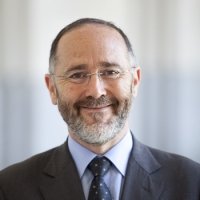
Fernando Reinares
Professor of Political Science and Security Studies, Universidad Rey Juan Carlos, Madrid; and Director of the Program on Violent Radicalization and Global Terrorism, Elcano Royal Institute, Madrid
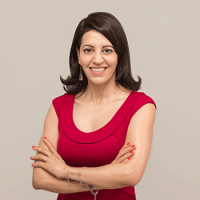
Nadia Oweidat
Assistant Professor of History and Security Studies, Kansas State University
Moderator
Hosted By

Middle East Program
The Wilson Center’s Middle East Program serves as a crucial resource for the policymaking community and beyond, providing analyses and research that helps inform US foreign policymaking, stimulates public debate, and expands knowledge about issues in the wider Middle East and North Africa (MENA) region. Read more

Indo-Pacific Program
The Indo-Pacific Program promotes policy debate and intellectual discussions on US interests in the Asia-Pacific as well as political, economic, security, and social issues relating to the world’s most populous and economically dynamic region. Read more

Global Europe Program
The Global Europe Program is focused on Europe’s capabilities, and how it engages on critical global issues. We investigate European approaches to critical global issues. We examine Europe’s relations with Russia and Eurasia, China and the Indo-Pacific, the Middle East and Africa. Our initiatives include “Ukraine in Europe” – an examination of what it will take to make Ukraine’s European future a reality. But we also examine the role of NATO, the European Union and the OSCE, Europe’s energy security, transatlantic trade disputes, and challenges to democracy. The Global Europe Program’s staff, scholars-in-residence, and Global Fellows participate in seminars, policy study groups, and international conferences to provide analytical recommendations to policy makers and the media. Read more
Thank you for your interest in this event. Please send any feedback or questions to our Events staff.





